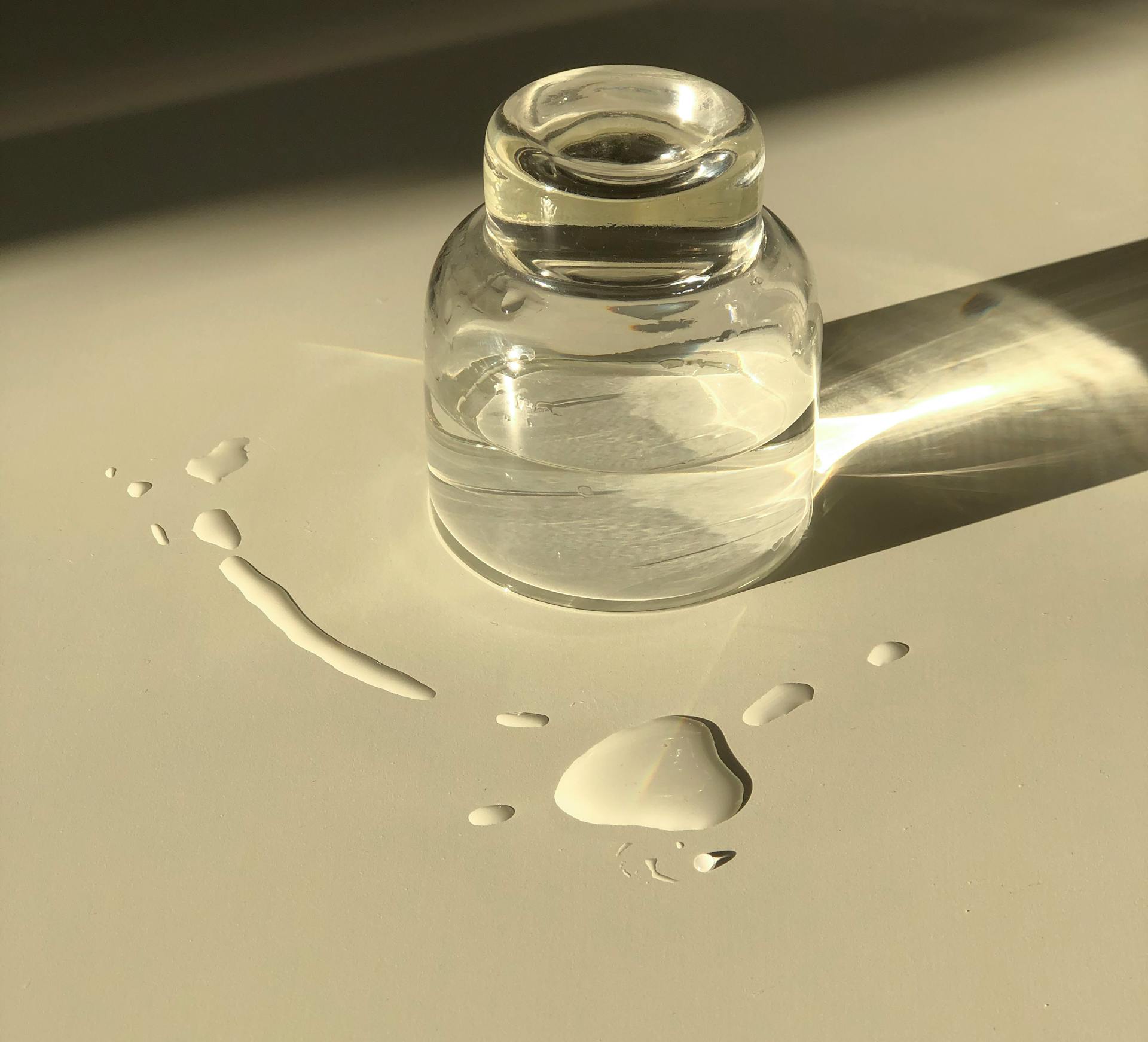
The answer to this question will depend on many factors - particularly how much you have been drinking and for how long. Seizures that occur after discontinuing the use of alcohol are known as withdrawal seizures. For people who drink heavily over a long period of time, stopping suddenly can cause a change in the level of certain chemicals in the brain, resulting in seizures or other symptoms of alcohol withdrawal syndrome (AWS). The chances of having a seizure if you stop drinking also depend on your individual tolerance to alcohol and any existing physical conditions. Generally speaking, people with higher levels of tolerance and lower risk for AWS may not experience any seizures upon discontinuing their intake; however, heavier drinkers are more likely to experience this symptom.
If you believe that you may be at risk for experiencing seizures when quitting drinking, seek professional medical advice prior to doing so. Your doctor will take into account your medical history and personal lifestyle before recommending a course of action safe for your individual needs. It is important to note that severe withdrawal symptoms such as delirium tremens or hallucinations can result from sudden cessation or cutting down on heavy drinking habits; these symptoms should always be monitored by an experienced healthcare professional who can address any concerns promptly.
Overall, it is impossible to definitively answer whether or not someone will definitely experience a seizure if they cease their consumption without additional information related to their personal situation- especially surrounding past usage habits and health background -but speaking generally those with moderate dependency levels likely would not experience this particular symptom under normal circumstances.
What are the risks if I quit drinking abruptly?
If you've been regularly consuming alcohol on a daily basis and decide to quit drinking abruptly, there are both physical and psychological risks that may arise.
On the physical side of things, quitting alcohol abruptly can lead to withdrawal symptoms ranging from mild shakes, anxiety, insomnia and headaches to more serious symptoms such as seizures or delirium tremens, which can include confusion and even hallucinations. Depending on the severity of your symptoms, it's best to consult with a medical professional before beginning any detoxification process.
Psychologically speaking, avoiding social events or gatherings where drinking is involved after putting down the bottle can be difficult for some people. This is because drinking was once associated with being part of an event or gathering rather than an explicit issue they needed to address head-on by themselves. Those who have built meaningful relationships around their experiences with drinking may find it difficult adjusting without that same level of support structure being present in their life anymore which could lead them down darker paths like isolation and depression if these psychological aspects go left unattended for too long post-abstention period.
All in all if you're planning on putting down the bottle for good then please seek out medical advice prior so you best equipt yourself against any potential withdrawal symptom that might arise during your initial period trying to quit; just because something starts off mild doesn't mean it should be disregarded due curtailing longer lasting consequences as a result afterwards ranging from merely superficial/physical issues all the way up through deeper psychological ramifications later on in life if one isn't prepared heading into abstinence mode entirely ready for what new challenges await them ahead around said corner moving forward shortly afterwards...
Can suddenly stopping alcohol intake cause seizures?
It's important to note that sudden stopping of alcohol intake can indeed cause seizures, or more specifically, alcohol withdrawal seizures. This condition occurs when those who have developed a physical dependence on alcohol suddenly stop their drinking. The body has become accustomed to the presence of alcohol in the bloodstream, and as it is removed from circulation, a seizure disorder can occur in extreme cases.
It is very much dependent upon how much an individual drinks daily and for how long of a period this has been going on for; chronic drinkers who are heavily dependent on alcohol will be at higher risk for experiencing severe symptoms such as seizures during withdrawal. Heavy drinking for several years can lead to the development of tolerance toward the negative effects associated with consuming large amounts of alcoholic beverages over extended periods- meaning that the individual must drink more frequently or take greater quantities in order to maintain the same level of intoxication.When these people cease drinking completely, they may enter into larger realms of physiologic instability which can include tremors, deliriums and seizures- all symptoms relating directly back to cutting off their primary stressor -the presence or absence thereof..
Fortunately there are treatments available that can help minimize or even eradicate these types problems through medications and monitored detoxing procedures. Also keep in mind that many individuals do not experience any type seizure related activity whatsoever, so if you suddenly stop your intake beware that it could occur but please don’t let it deter you from seeking out professional support towards attaining sobriety if needed!
Is it dangerous to Alcoholics to quit consuming alcohol abruptly?
Excessive consumption of alcohol can lead to serious health issues and can be particularly dangerous if you quit abruptly. Quitting alcohol suddenly, or “going cold turkey,” can cause a form of withdrawal known as delirium tremens (DTs). People with alcoholism are at the highest risk of developing DTs which include symptoms like confusion, hallucinations, and seizures. If left untreated or if treated incorrectly these symptoms can lead to death.
Alcoholics who want to stop drinking altogether should visit their doctor before quitting. Doctors will both assess the individual and create an approach that gradually reduces the amount being consumed in order to minimize withdrawal symptoms. Physicians may also provide treatment using medications that reduce cravings for drink and further reduce chances for experiencing severe withdrawal systems during the process of recovery from alcoholism.
It is not safe for an alcoholic to quit drinking without consulting a professional healthcare provider first. Abruptly ceasing use of alcohol without accompanying addiction treatment increases risks for complications from delirium tremens as discussed above; however it could be more dangerous than even this as total abstinence sometimes creates another type problem called post-acute withdrawal syndrome (PAWS) which leads to prolonged mental anguish lasting weeks or months after someone quits drinking completely due lack experiences positive reinforcement incentives normally provided by slight reductions in consuming beverages such is often advised at start when helping them work toward eventual total deprivation abstention possibilities faced upon later considerations, times yet come that requiring adjustment levels set place additional control measures remain appropriate levels hoped prevention psychological miseries then possible while still coping against what little hopes remaining eventually provide ultimate restorations total sobriety potential awareness accomplished already!
What types of symptoms can result from suddenly ceasing alcohol consumption?
Alcohol addiction is a debilitating disorder that can wreak havoc on an individual’s life and well-being. Unfortunately, ceasing alcohol consumption throws the body into a state of chaos and there are many types of symptoms that come along with this sudden lifestyle change.
The most commonly reported withdrawal symptom is mild insomnia which can cause restlessness, irritability and difficulty concentrating throughout the day. This can prevent an individual from obtaining meaningful sleep in order to help facilitate recovery from alcohol addiction.
Anxiety-related symptoms such as increased heart rate and palpitations are also common side effects associated with abruptly stopping alcohol consumption. The sudden rush of adrenaline may lead to feelings of uneasiness often accompanied by panic attacks or intense fear in severe cases.
Tremors are another common side effect of suddenly ceasing alcohol consumption as they indicate an imbalance within the body chemistry due to changes in electrolytes, sugar levels or dehydration among other factors. In extreme cases there have also been reports of seizures or delirium tremens which involve hallucinations, confusion and delusions as well as life threatening spells if not treated properly.
It is clear that without proper medical supervision it truly does not make sense for anyone struggling with alcohol dependency to quit cold turkey rather they should seek help from professionals who understand how best to support a person through their transition toward sobriety while also ensuring their safety during this difficult period.
Can going cold turkey on alcohol lead to a seizure?
The idea of “going cold turkey” on alcohol is a fairly extreme method for trying to quit drinking. But, because it can drastically reduce how much or how quickly a person consumes alcohol, the possibility does exist that it could lead to seizures.
When someone who is a heavy drinker quits drinking abruptly and without professional help, it can set off an abrupt change in their body - specifically the nervous system including brain and organs (brain seizures being one of those). This abrupt change can happen so quickly that all of their body’s functions don't have time to adjust properly and safely as they enter withdrawal.
Alcohol has an impact on your neurotransmitters (such as GABA which plays a role in nerve excitation and seizure control). Withdrawal from excessive amounts of alcohol will alter these neurotransmitters which may put you at risk for o convulsive seizure due to the sudden absence of this calming effect. The presence or absence of other substances such as drugs or medications can also factor into whether you experience seizures during withdrawal from alcohol, further complicating this issue.
So yes, going cold turkey on alcohol could potentially lead to a seizure if done without proper planning and medical oversight –especially in certain circumstances such as long-term abuse or concurrent drug use. Quitting “cold turkey” without clinical supervision increases your risk for several other complications from withdrawal, including not just seizures but hallucinations and even delirium tremens–a very serious condition where visual hallucinations become prominent amongst other symptoms like higher heart rate/blood pressure
While anything is possible when attempting forced cease intake such as quitting ‘cold turkey', it's highly recommended that anyone desiring to break free from heavy tissue use should seek proper medical guidance prior so potential adverse effects—such seizures—may be prevented altogether through safe taperingplans tailored towards individuals anatomy & chemical makeup.
Does abrupt cessation of alcohol intake increase seizure risk?
Abrupt cessation of alcohol intake is known to be associated with an increased risk for seizures. While some researchers believe that cutting off alcohol abruptly can cause a certain kind of seizure disorder known as "delirium tremens" (DT), there is little evidence to support this theory and the exact link between DT and abrupt cessation of alcohol use remains unclear.
Seizures are the result of an abnormal electrical activity in the brain and usually occur when there is an imbalance in neurotransmitter levels. It has been speculated that sudden withdrawal from regular, heavy drinking may lead to changes in excitatory and inhibitory balance inside neurons, causing exaggerated activity that could lead to seizure activity. This hyperactivity may also be due to long-term changes in neural cell structure as well as decreased response time and sensitivity caused by other metabolic processes involved in alcohol abuse or dependence.
However, it is important to note that research on this topic has not yet come up with concrete findings proving a direct correlation between abrupt cessation of alcohol use and increased seizure risk. In addition, seizures can occur due to other factors such as genetics, head trauma or drug overdose which means one cannot simply conclude that stopping drinking abruptly causes seizures unconditionally without further evidence for any individual case.
It should be taken into consideration however, especially if you have previously had any history of epilepsy or have suffered from DT due to previous binge-drinking episodes even if abstaining completely since then; it would be advisable anyway just give your body enough time when ceasing drinking: rather than quitting suddenly by going “cold turkey” try gradual reduction instead over a period before cutting down completely which could help gradually decrease intoxication levels while avoiding severe discomfort due withdrawals symptoms; this could potentially also reduce your risks associated with abrupt cessation-associated seizures – but only if here was no pre-existing propensity towards getting them before hand!
Sources
- https://www.fda.gov/news-events/fda-newsroom/press-announcements
- https://www.jamaicaobserver.com/section/
- https://abc7ny.com/
- https://www.today.com/popculture
- https://tribunecontentagency.com/
- https://www.smh.com.au/lifestyle
- https://www.pcgamer.com/microsoft-says-a-sony-deal-with-activision-stops-call-of-duty-coming-to-game-pass/
- https://www.lifeextension.com/
- https://news.yahoo.com/
- https://www.gale.com/databases/questia
- https://www.military.com/daily-news
- https://www.cbssports.com/mlb/
- https://www.aol.com/news/
- https://www.usmagazine.com/celebrity-news/
- https://successessays.com/
Featured Images: pexels.com


